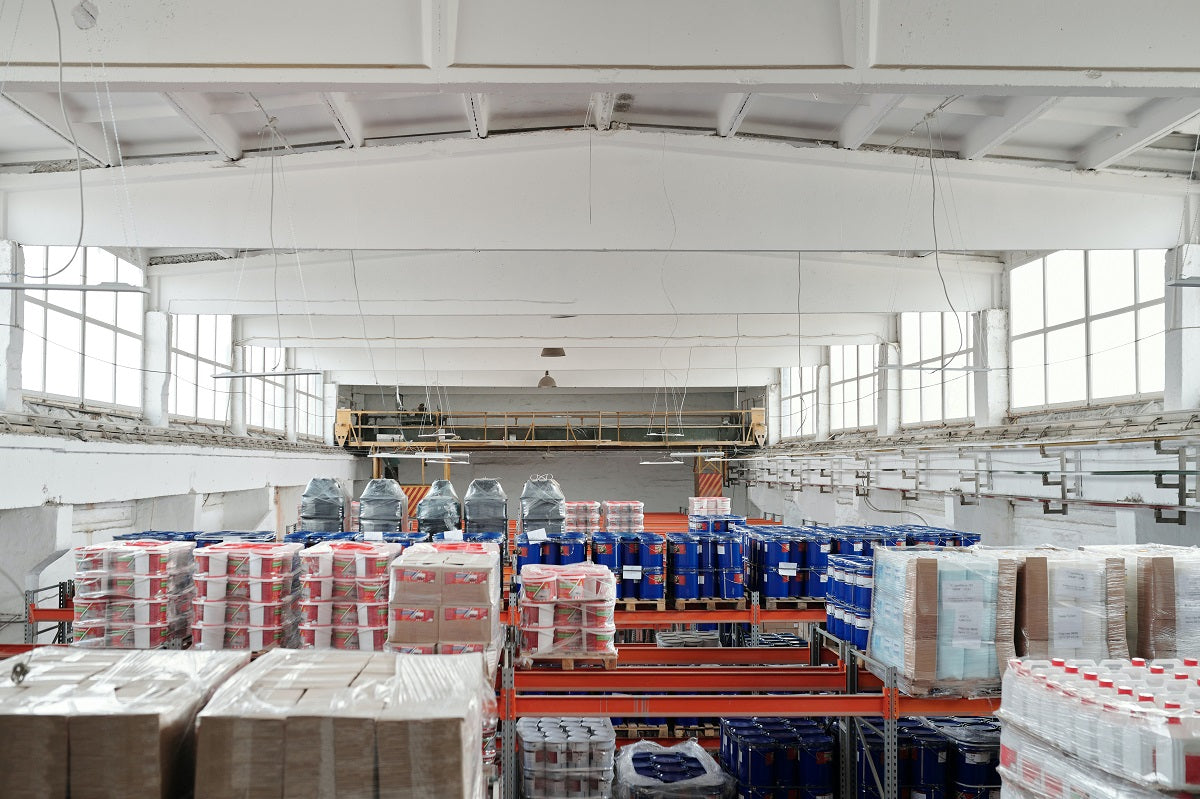Often times, companies do not have the resources to store and transport their goods. When your business grows and you can no longer handle every delivery yourself, it’s time to expand your logistics. One possibility is to outsource to a 3PL service provider.
In this article, we will show you what makes these service providers special and the pros and cons of working with them.
What are 3PLs?
3PL (Third Party Logistics) refers to outsourcing the fulfillment of your company’s orders to an external partner. A 3PL service provider takes over the company’s products and their delivery to end customers and acts as an intermediary between your company and your customers.
Are you ready to turn your ideas into reality?
Try Shopify for free and sell as much as you want!
Table of contents:
What logistics models are there?
Logistics service providers are classified according to the logistics tasks they perform for companies. But which logistics service provider does your company need? It mostly depends on how far you can go with internal logistics.
Smaller companies are more likely to need 5PL suppliers, while larger companies are more likely to rely on 1PL suppliers because they have enough resources to manage their own warehouses.
read tips: Learn more about order management in this article.
1PL (first party logistics)
Under the 1PL model, the manufacturing company undertakes most of the logistics itself. The manufacturer or producer is solely responsible for shipping and all activities from packaging to loading to delivery. Use internal departments and resources for this.
2PL (second party logistics)
Here, only the transport itself is outsourced to contractually bound logistics partners. However, manufacturing companies continue to control and manage their logistics processes.
read tips: Here you can find a comparison between the best fulfillment providers.
3PL (Third Party Logistics)
Logistics providers extend their service portfolio beyond 2PLs and act as system service providers. The 3PL service provider is entrusted with the coordination and operational management of the logistics. Fulfillment services such as warehouse work are also often undertaken.
Free Webinar: To Your Own Online Store in 30 Minutes
Do you want to see for yourself how fast you can open a store?
Shopify expert and passionate store owner Adrian Piegsa shows you how to register, link domains, choose products, and of course enforce all legal requirements.
join for free
4PL (fourth party logistics)
The 4PL provider takes over the management of the entire transportation or warehousing logistics. They do not own any warehouses or means of transport. As a neutral partner, they monitor, guide and improve all logistics processes and are therefore also 3PL service providers – so they take on a more consultative role.
5PL (fifth party logistics)
In the 5PL model, the management of all logistics is outsourced to external service providers. This includes production packaging, storage and shipping. Here, the planning, organization and implementation of logistics are completely in the hands of third-party service providers.
Read the tips: This is how you use SKU item numbers for your logistics.
3PL Service Provider Functions and Processes: Internal

goods receipt
3PL service providers are often used to deliver products from warehouses. In this way, personnel and storage costs can be saved. Due to the high volume of orders, these service providers can negotiate favorable terms with freight companies. Order fulfillment warehouse technology coordinates and manages your products.
pick
Orders are sent directly to the warehouse thanks to the integration of the management system into the provider’s e-commerce platform. Products are localized using software in the warehouse and then picked. When choosing a 3PL service provider, make sure they are flexible and reliable to handle your company’s order volumes.
Package
Attractive packaging is crucial to first impressions. Together with your 3PL service provider, you can determine individual packaging requirements, taking into account size, weight, cost, design and safety.
Read the tips: Learn how packaging affects customer loyalty.
transportation
3PL service providers greatly simplify this complex and costly part of the fulfillment process. Together with a freight forwarder or trucking company, you negotiate the most cost-effective shipping strategy for your company. Faster delivery times are also guaranteed by allocating your goods to different warehouse locations.
return
Together with your 3PL provider, you define a structured procedure for accepting and documenting returned products. Service providers can provide shipping labels so customers can easily return and track their items.
Read the tips: We have summarized for you the most important things about returns management.
Benefits of 3PLs

Outsourcing logistics to a 3PL service provider can bring many advantages to a company. They are often used when supply chains and processes are too complex for the company.
Key benefits include:
- Cost reduction: Using a 3PL can reduce warehousing, shipping and technology costs. In addition, the distribution of these tasks also saves personnel costs.
- Experience and Expertise: Is your company far from the logistics industry? Then, thanks to a 3PL, you can take advantage of the knowledge of logistics experts who will find the best solutions to optimize your supply chain.
- international influence: 3PL service providers can help you enter global trade faster because they are familiar with local markets, regulations and authorities.
- Improve customer service: Using a 3PL can also improve customer service. This ensures your order is delivered quickly and on time by a qualified driver. This further improves the delivery experience for customers.
- Scalability: 3PLs provide you with scalable resources, such as manpower, space, and transportation, to meet your storage needs and accommodate seasonal demands. That means you don’t have to worry about inventory and storage costs eating into your bottom line.
Read the tips: In this article, you’ll find tips and tricks for shipping from your online store.
Disadvantages of 3PLs
There is always a certain amount of risk involved with using an outside company, and that’s normal. By outsourcing, you hand over responsibility to a third party. This results in a lack of direct oversight and control. If your 3PL provider makes mistakes, those mistakes will still fall on your company. Therefore, ensuring quality control and customer service requires extra attention. Therefore, you should be very careful in choosing your service provider for the cooperation to be successful.
Read the tips: You can use an online marketplace as an additional sales channel.
Tips for Choosing a 3PL Provider

If you decide to outsource your logistics process, you should be aware of the following:
- Find out ahead of time what services are on offer, review references and determine your requirements.
- Location also plays a role. 3PL partners must be able to deliver products to their customers as quickly as possible. So, know the location and how long shipping/shipping will take.
- Every company has different requirements for its logistics. Therefore, suppliers should be flexible in order to be able to respond to dynamic markets. For example, flexibility and scalability play an important role when demand peaks. So make sure your 3PL provider can handle these special cases.
- Outsourcing your logistics should be an enrichment for your company, not a cost factor. Therefore, the price is also an important point in the selection.
- You should also rely on logistics service providers who use technology and automation to carry out their processes – be it storage or order preparation and shipping.
- Good communication and problem-free data exchange are the top priorities for a successful cooperation. Your service provider should take the time to understand your needs.
Listen to our podcast to learn more about the inspiring founder stories of our successful retailers. have fun!
Better subscribe directly to Shopify Podcasts and never miss an episode again!
in conclusion
A good 3PL provider specializes in offering services tailored to your business needs. In this way, they can provide you with optimal support in optimizing your logistics, while you can devote your time to other areas.
If you want to outsource processes that are not at the core of your business, a 3PL might be the right solution for you. You don’t have to worry about complicated delivery and return processes, and you can focus on other tasks of your company.
Are you ready to turn your ideas into reality?
Try Shopify for free and sell as much as you want!
Frequently Asked Questions About 3PLs
What is the difference between 3PL and 4PL?
4PL providers provide additional services to 3PL providers. Here, not only the coordination of operations and the control of transport or warehouse work are outsourced, but also the entire administration.
What is a logistics provider?
Logistics providers support retailers in all processes related to the movement of goods. This also includes delivery, returns, warehousing and strategic logistics management.
What does outsourcing logistics mean?
Depending on the logistics model you choose, you can only outsource individual transports to customers and undertake all other activities yourself. But you can also outsource your entire supply chain – including strategic planning for all process steps.
 About the author: Alice Viete is a content marketing expert. As an agency owner, she supports B2B and eCommerce companies in implementing their personalized content strategies. On the Shopify Blog, she writes about current topics of successful retailers and online transactions.
About the author: Alice Viete is a content marketing expert. As an agency owner, she supports B2B and eCommerce companies in implementing their personalized content strategies. On the Shopify Blog, she writes about current topics of successful retailers and online transactions.

